#Nathan Zuckerman
Explore tagged Tumblr posts
Text
honestly early chapters Nathan deserves more credit considering how much bullshit he has to put up with from Kishiar’s side
being told the just off age commoner is hot
the weird commoner has to be a spy because he’s entirely too good at everything
Kishiar not leaving the suspicious guy alone
Fucking assassination attempt he wasn’t there for and the incredibly fucking weird powerful commoner dealt with on his own
Looking after the cavalry while Kishiar is doing hot girl shot
Kishiar using the powers to fix the commoner’s weird funky wound
Like I’m only praying he never learns about the whole ‘propositioning Yuder to see how he reacts’ thing bc while I think Nathan is too professional to slap Kishiar, I think he would oversteep his tea
207 notes
·
View notes
Text
Kishiar being Kishiar (novel spoilers!!!)


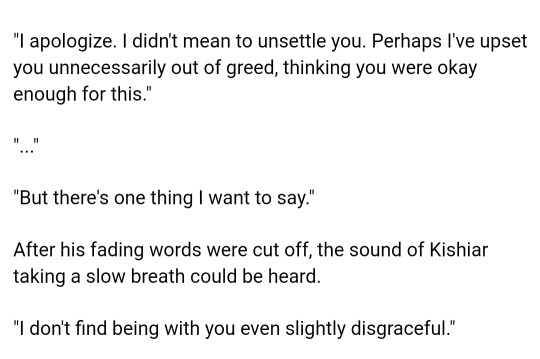


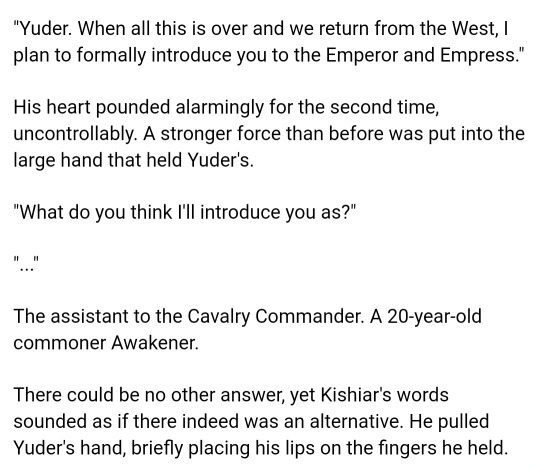


HOW CAN A MAN LIKE THIS EXIST?!?! AAAHHHHH. (Read turning if you haven't yet, join the discord server if you haven't yet^-^)
#turning by kuyu#turning#turning bl#turning novel#yuder aile#kishiar la orr#Nathan Zuckerman#im mentally unstable about them#KishiYu#kishiyu#koream novel#korean bl#yaoi bl#yaoi novel
117 notes
·
View notes
Text
After one too many personal training sessions

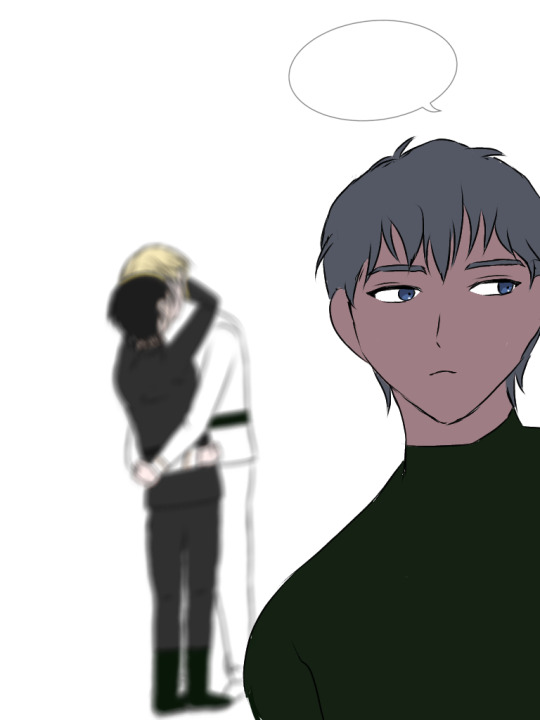
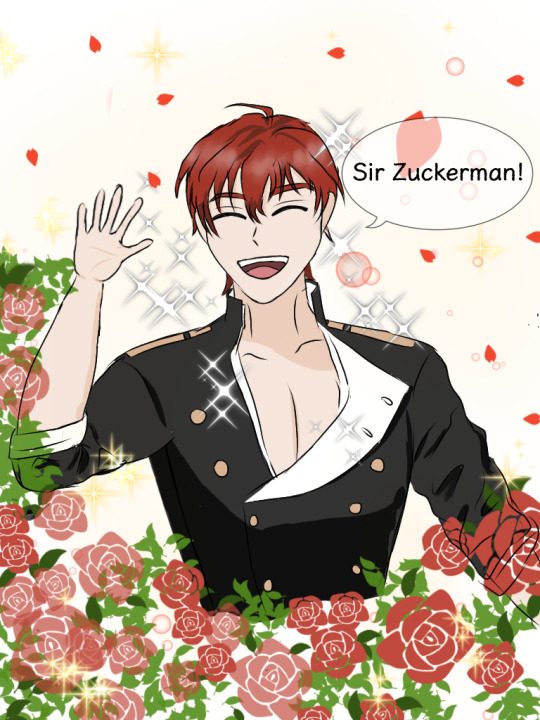

#GUESS WHO HAS A NEW PAIR OF MEW MEWS (to torment) TO DRAW FANARTS OF <333333#They started living in my head rent free ever since I saw that au#😭😭😭💕💕💕💕💕💕#Lyft and Sharu's big brain time#turning#turning fanart#Nathan Zuckerman#gakane bolunwald#터닝#NatKane
32 notes
·
View notes
Text
You can see from Nathan's face that he is thinking about either vacation or dismissal lmao






48 notes
·
View notes
Text

The Human Stain (2003, Robert Benton)
26/12/2024
#The Human Stain#film#2003#robert benton#Scriptment#philip roth#Nathan Zuckerman#alter ego#Jean-Yves Escoffier#new england#Zulu people#vietnam war#african americans#american film institute#black reel awards#Anna Deavere Smith#wentworth miller#Canadian Network of Makeup Artists#Donald Mowat#Hollywood Makeup Artist and Hair Stylist Guild Awards#Robert McCann#Gillian Chandler#Washington D.C. Area Film Critics Association#united states#Category 2003 films#aspect ratio#Film genre
0 notes
Text
















Lucas Bryant +being killed by writers Lilla & Nora Zuckerman
Haven 2x6 Audrey Parker's Day Off (2011) Directed by Fred Gerber
Marvel's Agents of SHIELD 6x4 Code Yellow (2019) Directed by Mark Kolpack

#lucas bryant#nathan wuornos#damon keller#agent keller#havensyfy#aosedit#nocticola art#2x6 audrey parker's day off#6x4 Code Yellow#deaths#lucas dies prettily#haven cast and crew#lilla zuckerman#nora zuckerman
9 notes
·
View notes
Text
The ever-talking double of the Rothian pantheon is a Jew. Jewish talkiness may be an artifact of theology (arguing with God), an effect of history (wheedling with Cossacks), a residue of Talmudic practice, or the product of psychoanalysis (“say everything”). Whatever the source, there is “inside each Jew,” as one character puts it in Operation Shylock, “so many speakers! Shut up one and the other talks.”
The irrepressible talker is mobilized by Roth against any notion of Jewish wholeness or authenticity, of being oneself, at home in the world. The authentic Jew is the fantasy of the Zionist and the anti-Semite alike. Both get a platform in the “Judea” and “Christendom” chapters of The Counterlife, in which they reduce the Jew to a singular, univocal self. Purged of ambiguity and uncertainty, that Jew has only one destiny: to vacate his diasporic premises and go back to where he belongs, the land of his ancestors, where he will stop talking so much, or at least in so many voices.
Roth’s defense of the double against Jewish reductionism and Zionist certainty is also, in a way, the upshot of Arendt’s strictures about the doubling of the self. The fact that “I am inevitably two-in-one,” she writes, “is the reason why the fashionable search for identity is futile and our modern identity crisis could be resolved only by losing consciousness.” The search for a grounding identity—Jewish or otherwise—necessarily finds its terminus in the stasis of a unified self, unable to carry on a conversation even with itself. Down such a path, she suggests, lies death. [...]
Roth and Arendt turn the double into a figure of satire and irony, using its destabilizing comedy to deprive that house of its foundations. Roth’s most fanciful double is Anne Frank. In The Ghost Writer, the young Nathan Zuckerman, like the young Roth, has written a story that earns him the accusation of being a self-hating Jew. His accusers include his parents and Judge Wapter, a family friend and respected leader of Newark’s Jewish community. Desperate for exoneration, Nathan makes a pilgrimage to the home of an esteemed and elderly Jewish writer (modeled on Bernard Malamud) who lives in the Berkshires with his wife. There, Nathan meets the writer’s assistant, Amy Bellette. As the evening goes on, the form of Nathan’s redemption takes shape: Amy is really Anne Frank, and Nathan will marry her. What better guarantor of his Jewish credentials? He imagines returning to New Jersey and the conversation with his parents that will ensue:
“I met a marvelous young woman while I was up in New England. I love her and she loves me. We are going to be married.” “Married? But so fast? Nathan, is she Jewish?” “Yes, she is.” “But who is she?” “Anne Frank.”
According to Bailey, Roth originally wrote the Bellette character as if she were, in fact, Anne Frank. But that simple application of the reality principle prevented him from finishing the book. It was only when he realized that Bellette had to be a fantasy Anne Frank—a fictitious double, conjured from Nathan’s head—that Roth was able to find the comedy in, the meaning of, the story: how an agonistic writer could turn himself into a nice Jewish boy by marrying the nicest Jewish girl that ever lived, how the most sacred figure of the Holocaust—and the Holocaust itself—could be used to resolve the most profane family romance.
Corey Robin, "Arendt and Roth: An Uncanny Convergence"
17 notes
·
View notes
Text
A reporter becomes the target of a vicious smear campaign that drives him to the point of suicide after he exposes the CIA’s role in arming Contra rebels in Nicaragua and importing cocaine into California. Based on the true story of journalist Gary Webb. Credits: TheMovieDb. Film Cast: Gary Webb: Jeremy Renner Anna Simons: Mary Elizabeth Winstead Fred Weil: Michael Sheen John Cullen: Ray Liotta Ronny Quail: Robert Patrick Norwin Meneses: Andy García Coral Baca: Paz Vega Ricky Ross: Michael Kenneth Williams Sue Webb: Rosemarie DeWitt Alan Fenster: Tim Blake Nelson Russell Dodson: Barry Pepper Jerry Ceppos: Oliver Platt Richard Zuckerman: Richard Schiff Quail’s Girlfriend: Jena Sims Rich Kline: Joshua Close Danilo Blandon: Yul Vazquez Ian Webb: Lucas Hedges Eric Webb: Matt Lintz DEA Agent Miller: Gil Bellows Anonymous Agent: Steve Coulter Leo Wolinsky: Dan Futterman Los Angeles Times Editor: Susan Walters Washington Post Editor: David de Vries Doug Farah: David Lee Garver Female Anchor: Rhoda Griffis Ricky Ross Trial Judge: Jen Harper DEA Agent (uncredited): David Alessi Reporter Washington Post (uncredited): Grace Baine DC Business Woman (uncredited): Shaira Barton Self (archive footage) (uncredited): Nancy Reagan Christine Webb: Parker Douglas Film Crew: Producer: Scott Stuber Director: Michael Cuesta Executive Producer: Peter Landesman Producer: Jeremy Renner Producer: Naomi Despres Executive In Charge Of Production: Louis Phillips Cinematography: Sean Bobbitt Novel: Gary Webb Original Music Composer: Nathan Johnson Executive Producer: Pamela Abdy Executive Producer: Michael Bederman Executive Producer: Don Handfield Editor: Brian A. Kates Production Design: John Paino Casting: Avy Kaufman Costume Design: Kimberly Adams Costume Design: Doug Hall Movie Reviews:

View On WordPress
#american journalist#biography#california#central intelligence agency (cia)#crack cocaine#drug trafficking#government conspiracy#investigative journalism#san jose#Top Rated Movies
0 notes
Text
Pastorale americana

Pastorale americana è un romanzo di Philip Roth scritto nel 1997 e che gli fece vincere il Pulitzer nell’anno successivo.
E’ il primo della trilogia di Zuckerman, protagonista dei romanzi e alter ego di Roth; poi arriveranno “Ho sposato un comunista” e “La macchia umana”.
Struttura del romanzo
E’ strutturato in 3 parti, ogni parte ha 3 capitoli. Le tre parti sono: “paradiso ricordato”, “la caduta”, “paradiso perduto”. Ha circa 450 pagine. Le tre parti evidenziano i tre atti del romanzo.
Personaggi
Nathan Zuckerman. Voce narrante, è l’alter ego di Roth. E’ un uomo in là con gli anni, scrittore, si è appena operato alla prostata e ha ricordi brillanti dello svedese alla high school.
Seymour Levov “lo svedese”. Protagonista del romanzo. Fin da ragazzo è stato “perfetto”; fisicamente era alto, biondo, robusto, bellissimo; riusciva in tutti gli sport senza particolare fatica; era gentile, educato, in gamba, altruista, era ammirato da tutta la scuola; poi diventa un imprenditore di successo, sposato con la Miss New Jersey.
Dawn Levov. Miss New Jersey (aspetto cruciale) e moglie dello svedese.
Meredith “Merry” Levov. Figlia dello svedese. Intelligente, vispa, molto testarda. Ha un unico difetto: la balbuzie.
Jerry Levov. Fratello dello svedese. Sempre in secondo piano rispetto al fratello maggiore. Sviluppa un carattere completamente diverso, molto tagliente e diretto. Diventerà il miglior cardiochirurgo della Florida. Divorziato 4 volte.
Lou Levov. Padre dello svedese, guantaio e ossessionato dai guanti e dall’industria dei guanti. Personalità ingombrante e netta. Conservatore nei modi, ebreo fino al midollo.
Rita Cohen. Ragazza misteriosa, amica di Merry, stessa età. Aiuterà lo svedese a ritrovare Merry.
Sheila Salzaman. Logopedista di Merry. Diventerà importante.
Contesto
Il romanzo è ambientato nel New Jersey, soprattutto a Newark e nei paesini attorno, tra gli anni quaranta e gli anni settanta.
L’ambiente culturale è quello bianco ebreo della classa medio alta. Come sempre, per Roth.
Si sente fortissimo il contesto culturale di due specifici periodi: intorno agli anni della guerra, quando Zuckerman e lo svedese erano all’high school e la fine degli anni ‘60 e inizio anni ‘70, quando oltre alle rivolte culturali e sociali, ci fu la guerra del Vietnam (che scatenò proteste violentissime), la crisi del Watertgate e i disordini a Newark, città dove i Levov hanno la fabbrica.
Intanto i tempi stanno cambiando, la società statunitense sta cambiando. Sono questi sconvolgimenti, questa confusione, questa ricerca di risposte che fa crollare tutto.
Trama
Prima parte.
Zuckerman ricorda la vita perfetta e il grande successo avuto da giovane dallo svedese. Incontra il fratello dello svedese, Jerry, e altri compagni al raduno del quarantacinquesimo anno della high school.
Nel frattempo lo svedese lo contatta, che emozione!, per fargli scrivere la storia di successo di suo padre; si incontrano, quella è una scusa, ma lo svedese non si sbottona e non fa altro che raccontare la sua vita perfetta.
Poi Zuckerman scopre che lo svedese è morto ma che, soprattutto, sua figlia è responsabile di un attentato terroristico in cui è morta una persona.
Seconda parte.
La voce in terza persona non si occupa più di Zuckerman. Ripercorriamo il dramma dello svedese. Una vita perfetta da ogni punto di vista che si interrompe con la tragedia della figlia. Merry una volta compiuto l’attentato si dà alla macchia e non viene più ritrovata. I Levov vivono con questo enorme e insondabile peso. Soprattutto lo svedese si chiede come sia potuto succedere.
Incontra per la prima volta Rita Cohen, ragazza misteriosa, che gli chiede oggetti di Merry da portarle in clandestinità e soldi.
Terza parte.
Continua il racconto dello svedese negli anni di scomparsa di Merry. Ogni cosa, pagina dopo pagina, crolla.
Alcuni temi
Zuckerman o lo svedese Il protagonista è Zuckerman, tecnicamente. Il libro lo apre lui raccontando dello svedese. Ma poi, con l’andare delle pagine, scompare sullo sfondo, non si rifarà mai più vivo. L’unico e solo protagonista è lo svedese. Roth avrebbe potuto impostare il romanzo in modo completamente diverso.
I colpi di scena So che un romanzo può non vivere di trama e che la trama non sempre è rilevante; conta spesso di più lo stile. Quando ho approcciato Roth mi aspettavo un maestro di stile senza trama, alla “Stoner” o alla “Rumore bianco”. Invece la trama c’è. O meglio, non è solo questione di trama: ci sono i colpi di scena e i capovolgimenti. Roth si dimostra maestro nel prendere il lettore alla sprovvista per sorprenderlo e colpirlo inaspettatamente. Sa che il suo potere è immenso ma è bravissimo a dosarne la forza: sa che potrebbe esagerare e destare ancora più stupore ma a discapito della coerenza e della credibilità, quindi si tiene al margine perfetto.
Ritmo Ha un ritmo stranissimo, esattamente come l’unico altro romanzo (grosso) che io abbia letto di Roth, La macchia umana. Il lamento di Portnoy è simile ma di un’altra categoria, è più fresco e leggero. Una dimensione quotidiana e reale. In questa dimensione ci sono fatti come il ritrovo degli ex alunni o il racconto della giovinezza dello svedese, o ancora il loro incontro. Non ci sono riflessioni particolari ma è un racconto descrittivo, puntuale, lineare. Una seconda dimensione introspettiva. Pagine e pagine di introspezione dello svedese che si dilania di dubbi e angosce. Sono pagine più lente, viscose, che vanno avanti anche parecchio e sembrano davvero non portare a nulla. Sono pagine necessarie perché Roth rende perfettamente i moti dell’animo umani. Una terza dimensione teatrale. Teatrale nel senso che in questa dimensione ci sono i racconti dei drammi: Merry che fa esplodere il negozio, lo svedese che incontra Rita Cohen, lo svedese che ritrova Merry, o anche la cena finale. Sono sprazzi di azione e dialoghi tragici, assurdi. Il ritmo cambia ancora e si fa più serrato, pur rimanendo dentro la testa dello svedese, con tutti i suoi dubbi e angosce.
Rita Cohen Il personaggio di Rita Cohen mi ha disturbato. Mi ha ricordato i personaggi disturbati di Dostoevskji in quanto ricercatori del male e manipolatori. La sua presenza esaspera lo svedese. Ma non ho capito se è reale o no, e anche questo è un tocco di genio di Roth.
È un bel romanzo? È bellissimo. Non riesco a capire se sia meglio della macchia umana o no però io cedo completamente davanti a libri simili di Roth. Densi di introspezione, di fatti umani, di colpi di scena.
È scritto bene? Ritengo Roth il miglior scrittore che abbia mai letto insieme a Dostoevskij. Sto elaborando cosa vuol dire "bella scrittura", al momento dico solo che Roth è precisissimo, puntuale, tagliente, gestisce benissimo il ritmo e usa le parole in modo magistrale.
Frasi/Stralci P 41 “Rimane il fatto che, in ogni modo, capire bene la gente non è vivere. Vivere è capirla male, capirla male e male e poi male e,dopo un attento riesame, ancora male. Ecco come sappiamo di essere vivi: sbagliando. Forse la cosa migliore sarebbe dimenticare di avere ragione o torto sulla gente e godersi semplicemente la gita. Ma se ci riuscite…Beh, siete fortunati.”
P 69 “”Comunque, era tutto quello che avevo per non farmi sommergere dalla merda. -Merda? Che vuoi dire? -L’immagine che abbiamo l’uno dell'altro. Strati e strati d’incomprensione. L’immagine che abbiamo di noi stessi. Vana. Presuntuosa. Completamente distorta. Ma noi tiriamo diritto e viviamo di queste immagini.””
P 88 “Aveva imparato la lezione peggiore che la vita possa insegnare: che non c’è un senso.”
P 141 “Questa si chiama lustrina e quello si chiama palizzone e tu ti chiami dolcezza e io mi chiamo papino e questo si chiama vivere e l’altro si chiama morire e questa si chiama follia e questo si chiama piangere qualcuno che è morto e questo si chiama infermo, inferno pur ee semplice, e devi essergli molto legato per resistere, e questo si chiama sforzarsi-di-tirare-avanti-come-se-niente-fosse e questo si chiama pagare-il-prezzo-intero-ma-perché-in-nome-di-Dio?, questo si chiama vorrei-essere-morto-e-vorrei-trovarla-e-ucciderla-e-salvarla-da-tutto-quello-che-starà-passando-ovunque-sia-in-questo-momento, questo sfogo incontrollabile si chiama cancellare-tutto, e non funziona, sto perdendo la testa, troppo grande è la forza devastante di quella bomba…”
P 188 “E, nella vita di tutti i giorni, nient’altro da fare che continuare rispettabilmente ad avere l’enorme pretesa di essere se stesso, con tutta l0inta di essere, invece, solo la maschera di uomo ideale”
P 245 “Sì, siamo soli, profondamente soli, e in serbo per noi, sempre, c’è uno strato di solitudine ancora più profondo. […] Puoi cercare di tirar fuori tutto quello che hai dentro, ma allora non sarai altro che questo: vuoto e solo anziché pieno e solo.”
P 257 “Come potevano, i loro innocui difetti, aver contribuito a produrre questo essere umano?”
P 300 “La vita è solo un breve periodo di tempo nel quale siamo vivi. Meredith Levov, 1964”
P 304 “Nulla di tutto questo è vero. Cause, risposte chiare, a chi dare la colpa. Ragioni. Ma non ci sono ragioni. Merry è costretta a essere ciò che è. Come tutti noi. Le ragioni si trovano nei libri. […] Nessuno ne sa niente. Non è razionale. È il caos. È il caos, dall’inizio alla fine”
P 385 “Il cervello di tutti era dunque infido come il suo? E era lui l’unica incapace di vedere cosa stava macchinando la gente? Sgattaiolavano tutti qua e là come faceva lui, dentro e fuori, dentro e fuori, cambiando cento volte al giorno, ora intelligente, ora abbastanza intelligente, ora stupido come tutti gli altri, ora il più stupido bastardo che fosse mai vissuto?”
P397 “Sua figlia era una folle assassina che si nascondeva sul pavimento di una stanza di Newark, sua moglie aveva un amante che fingeva di scoparla sopra il lavandino della cucina, la sua ex amante aveva portato coscientemente la sua famiglia al disastro e lui stava cercando d’ingraziarsi suo padre spaccando il capello di quattro.”
P 410 “L’unica cosa a cui poteva aggrapparsi mentre la sua grande impresa che era stata la sua vita continuava a sfrecciare verso la distruzione: una cena. E alla terrazza illuminata dalle candele fece doverosamente ritorno, sempre portando con sé tutto ciò che non riusciva a capire”:
P 443 “Era una dote o una capacità che non possedeva. Non aveva, semplicemente, la combinazione di quella serratura. Prendeva per buono chi lanciava i segnali della bontà. Prendeva per leale chi lanciava i segnali della lealtà. Prendeva per intelligente chi lanciava i segnali dell’intelligenza. E fino a quel momento non era riuscito a vedere dentro sua figlia, non era riuscito a vedere dentro sua moglie, non era riuscito a vedere dentro la sua unica amante: forse non aveva neppure cominciato a vedere dentro di sé. Cos’era, lui, spogliato di tutti i segnali che lanciava? La gente, dappertutto, si alzava in piedi urlando: -Questa persona sono io! QUesta persona sono io! - Ogni volta che li guardavi si alzavano e ti dicevano chi erano, e la verità era che non avevano, non più di quanto l’avesse lui, la minima idea di chi o che cosa fossero. Credevano anche loro ai segnali che lanciavano. Avrebbero dovuto alzarsi e gridare: -Questa persona non sono io! Questa persona non sono io! - L’avrebbero fatto, se avessero avuto un minimo di pure. -Questa persona non sono io! - Allora forse avresti saputo come procedere tra quei segnali, tra le innumerevoli stronzate di questo mondo.
#philip roth#roth#american pastoral#pastorale americana#libro#letteratura#la macchia umana#recensione#libri
0 notes
Text
Antonio Velardo shares: ‘The Curse’ Series Premiere Recap: The Cameras Are Rolling by Esther Zuckerman
By Esther Zuckerman Nathan Fielder is not playing himself for once but his core fascinations are still on display. Published: November 10, 2023 at 10:46AM from NYT Arts https://ift.tt/1vhPV9A via IFTTT

View On WordPress
0 notes
Link
#benplatt#camp#candy#dylan'scandybar#LTOtheatercampbundle#mollygordon#movietheater#nicklieberman#noahgalvin#searchlightpictures#summercamp#theatercamp#theatercampbundle#theatercampmovie#trailer
0 notes
Note
"This loyal knight had helped clean up the mess following the manifestation of his second gender, and there had even been a one-on-one duel between them when he had defied Kishiar.
'A significant incident where both of us ended up wounded, and I discovered that Nathan Zuckerman was a hidden Swordmaster.'
-- screaming. I need more details on the duel but also the fact Nathan had to clean up the whole heat fiasco is so juicy just in terms of like, character dynamics and perspectives n such
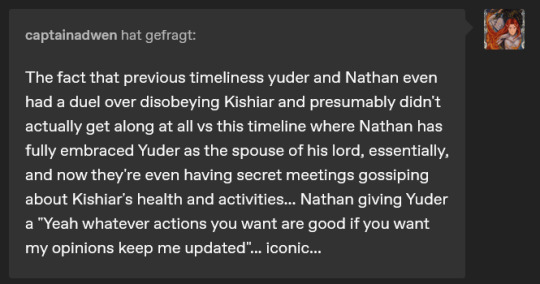
oh you're going to love some of the Nathan and Yuder interactions to come (they get a whole mission to themselves that's just. a riot imo).
But yeah, I really love how thisd also shows their different concerns?
Like, I'm sorry but first timeline Nathan had to deal with the aftermath of Yuder's second gender manifestation, Kishiar dying, Kishiar making his situationship his successor, the fact that there was a situationship at all - and teaching this 20-21 year old kid how to act like a noble in a year. Bestie was beyond overworked.
And now here in the second timeline, he spends most of the first half telling kishiar to not fuck the spy to be more careful around a highly suspicious individual - and Nathan is right btw!!! Yuder is sus af.
But watching him, he actually comes to like him. they bond over mutual worry for what the fuck kishiar is doing to himself.
43 notes
·
View notes
Text
Ch 562
Yuder wondered what else Gakane could have on his mind, sensing that it was something entirely different. After a moment of hesitation, Gakane clenched his fist and spoke. "What do you think, would Sir Nathan Zuckerman be willing to teach me swordsmanship?" "Nathan Zuckerman?" "During this mission, I noticed... he's incredibly skilled with a sword! I've never seen a knight so proficient."
I GIGGLED SO LOUDLY OH GOD NATKANE BRAINROT IS REAL

38 notes
·
View notes
Photo

"Old age isn't a battle; old age is a massacre." - Philip Roth
Ink on paper, 21 x 29,7 cm
フィリップ・ロス
#philip roth#caricatura#caricature#nathan zuckerman#portnoy#karikatur#karikatür#ilustracion#ilustracao#ilustração#Illustration#illustrazione#illustratie#portrait#portret#porträt#retrato#ritratto#cartoon#cartum#desenho#dibujo#dessin#zeichnung#pascal kirchmair#drawing#ink drawing#art#arte#kunst
4 notes
·
View notes
Quote
She laughed the way some people blush: all at once and completely.
Philip Roth, I Married a Communist, 214
#philip roth#i married a Communist#nathan zuckerman#ella#blush#laugh#all#completely#quote#american#lit#jewish
17 notes
·
View notes
Text
anyway today i'm thinking about american pastoral by philip roth because for whatever reason i've been in rothiana fixation hell for the past month. it's not even close to my favorite roth novel (sabbath's theater, babey!!!) but help girl...can't stop thinking about The Devices.
at its beginning, american pastoral is narrated by nathan "my dick don't work" zuckerman, who's in his sixties and reminisces about a) high school, and b) this guy named seymour "the swede" levov, who was the star high school athlete a couple grades above him. zuckerman's like "oh haha the swede is so cool but also quintessentially bland and all-american, nothing bad has ever happened to HIM" until he meets the swede's little brother jerry at a high school reunion and jerry's like "uhh you do know the swede's daughter set off a bomb in a general store and fucking killed someone right" which causes zuckerman to reminisce on how he was totally fucking wrong about the swede, how people are generally bad at judging others based on the exterior etc etc etc. quote below:
The fact remains that getting people right is not what living is all about anyway. It's getting them wrong that is living, getting them wrong and wrong and wrong and then, on careful reconsideration, getting them wrong again. That's how we know we're alive: we're wrong.
a bit after THERE the novel is ostensibly from the swede's perspective post-bombing and shifts into a more conventional "american family ripped apart by child's actions" plot BUT! the twist is the zuckerman frame narrative still exists. the whole plot is basically nathan z. imagining what must have happened, the swede's inner depths, etc. at some points the novel jumps into these bizarro scenes that seem extremely unrealistic (...rita cohen), which normally would be scoff-worthy but WAIT that's not "what happened" that's what zuckerman THINKS happened! he's wrong! he's trying to imagine what the swede was going through, and he is STILL getting it wrong.
when you try to critique this novel it loops around and proves its central thesis right: people are wrong about each other, and you can never truly know what's going on in someone's head. the meta device makes like 80% of this novel immune to criticism because roth could just be like "well that's what zuckerman thinks :-) and he is incorrect" i scream. zuckerman is literally proving his own early assumption right by BEING wrong...like!!! phil you motherfucker you've done it again
#like this book lacks some of the ~sparkle~ of some other roth books imo#but the ouroboros loop that makes the central thesis inarguable is so smart i adore it#philip roth#american pastoral#literary thought of the day
18 notes
·
View notes